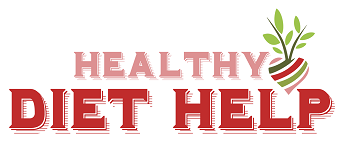As our respiratory system is the place where several pathogenic microorganisms and also the Coronavirus are housed, significantly impairing our breathing and, consequently, oxygenation, many people seek to know how they can increase oxygen levels in their blood.
Why this concern about increasing blood oxygenation? What does it interfere with? Should I be worried? What is the relationship between respiration and oxygenation? What does blood oxygenation help with?
Breathing is a vital function for humans and involves neural, chemical and muscular components, with its primary function being gas exchange between the alveoli and the blood, providing the oxygen necessary for tissue metabolism and removing carbon dioxide from the blood.
Blood oxygenation for advanced nutritionals helps your body have more energy, vitality and disposition throughout the day. And, what happens when your oxygen levels get too low? When blood oxygenation drops below a certain level, you may experience symptoms such as headaches, dizziness, shortness of breath, mental confusion or anxiety. In this post we will answer all the questions you may have and give you some tips that can help improve oxygenation.
What Is The Relationship Of Breathing With Oxygenation?
Breathing is the physiological process of oxygenation of the body, essential for the functioning of each of the cells that make up the human body. Breathing is an automatic function performed thousands of times a day.
Correct breathing improves lung capacity, as the lungs become more elastic and support an increasing volume of air, becoming stronger and more resistant. Breathing benefits cardiovascular health, as it does not overload the heart, relaxes the heart muscles and reduces blood pressure, in addition to promoting cellular metabolism. Correct breathing during the day promotes more invigorating sleep and reduces the incidence of insomnia, since the body is already more relaxed and oxygenated at bedtime. Did you know that moving the diaphragm during deep breathing stimulates peristaltic bowel movements, improves digestion and reduces the occurrence of constipation.
Slow, deep and conscious breathing is an effective tool for relieving feelings of stress and anxiety, due to its powerful relaxation capacity. On the contrary, rapid, short and unconscious breathing leads to reduced oxygenation of the brain, leaving reasoning confused and unfocused, favoring impulsive and poorly deliberated reactions. Our brain requires adequate oxygenation to function fully and carry out all its cognitive functions effectively: attention, concentration, memory, logical reasoning and understanding.
How To Increase Blood Oxygen Levels?
Here are some practices that help increase blood oxygen with oxygenation supplements:
- Practice Regular Physical Activity
Lack of physical activity, i.e. a sedentary lifestyle, leads to a decreased lung capacity due to lack of use. Let’s understand: aerobic exercises (walking, running, dancing, cycling, jumping rope, etc.) help you absorb more oxygen when you breathe and eliminate carbon dioxide. Also, it causes the heart to pump more oxygen to the muscles and increases circulation throughout the body. The more you exercise, the better your lung capacity and the higher your oxygenation. Start with at least three 30-minute cardio sessions a week. Remember to talk to your doctor or fitness professional before starting or changing an exercise routine.
- Healthy Eating
Raw foods contain more vital energy, which increases oxygen levels in the blood. Hemoglobin, a protein in red blood cells, helps carry oxygen throughout the body. Foods rich in minerals that increase hemoglobin: beef liver, oysters, crab, turkey organs, salmon, chocolate, potatoes, cashews and sesame seeds. Iron helps promote the production of hemoglobin in the body, which carries oxygen to the lungs and other organs. Iron helps increase oxygen in the blood and comes in two forms: heme (beef, oysters, duck and lamb) and non-heme (fruits, vegetables and grains).
- Practice Breathing Exercises
Breathing exercises help increase oxygen levels, reduce cortisol and reduce anxiety. You can do this exercise: you should breathe deeply with your diaphragm (raising your belly) – you can do it lying down and exhale slowly. Inhale through your nose for at least six seconds, hold the air for a few seconds and release for another six seconds. In case of discomfort, you can reduce the time of inspiration, retention and exhalation. Practice exercise consciously.
- Avoid Smoking
You must avoid the habit of smoking as it decreases the lung capacity and can cause lung diseases such as COPD, hypertension and heart disease. Smoking destroys tiny air sacs in your lungs that allow for oxygen exchange, prompting your organs to work harder to transport oxygen throughout your body.
- Take Dietary Supplements That Increase Oxygen Levels.
You can take beetroot supplements that help increase oxygen levels as they contain large amounts of nitrate, which is converted to nitric oxide.











